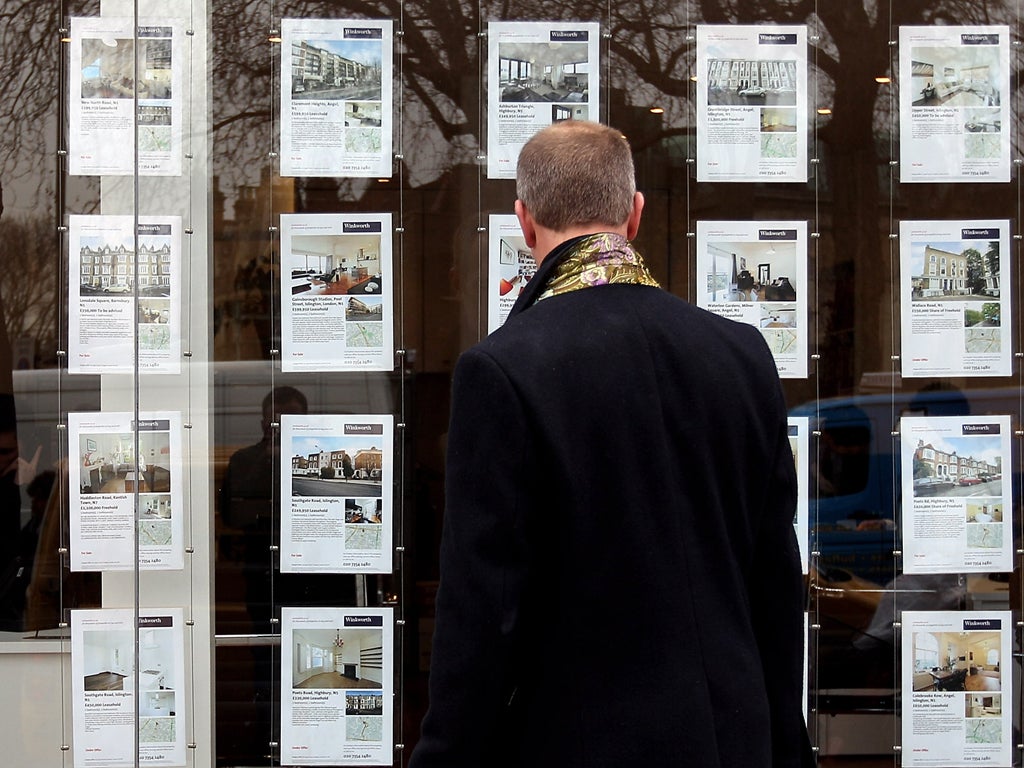Taxman cracks down on stamp duty evasion
HM Revenue & Customs warns buyers against schemes to avoid tax

Your support helps us to tell the story
From reproductive rights to climate change to Big Tech, The Independent is on the ground when the story is developing. Whether it's investigating the financials of Elon Musk's pro-Trump PAC or producing our latest documentary, 'The A Word', which shines a light on the American women fighting for reproductive rights, we know how important it is to parse out the facts from the messaging.
At such a critical moment in US history, we need reporters on the ground. Your donation allows us to keep sending journalists to speak to both sides of the story.
The Independent is trusted by Americans across the entire political spectrum. And unlike many other quality news outlets, we choose not to lock Americans out of our reporting and analysis with paywalls. We believe quality journalism should be available to everyone, paid for by those who can afford it.
Your support makes all the difference.Homebuyers wanting to avoid or reduce stamp duty costs face a crackdown by HM Revenue & Customs (HMRC) officials. Tax inspectors are taking a two-pronged approach.
First, they're focusing on private sales where buyers and sellers agree to keep a price below a stamp duty threshold while making unspecified payments for so-called fixtures and fittings. Second, buyers of high-value properties who are entering into complex trust arrangements to negate stamp duty liability may face retrospective tax charges.
Often these complex schemes are being offered by estate agency firms in return for whopping commissions – sometimes as high as 50 per cent of the stamp duty charge supposedly being avoided. "Buyers are in some cases being told that these schemes can help them negate any tax liability on a house purchase and this is often backed up with advice from legal counsel," says David Truman from accountancy firm Menzies.
"The watchword with any such scheme, particularly one being offered by anyone involved in the sale process itself, is caution. These schemes are not guaranteed to work, but what is guaranteed is that the Revenue is likely to investigate such schemes and potentially an individual's wider tax affairs." Schemes are usually offered only to buyers of pricier properties – above the £500,000 threshold which attracts a tax charge of 4 per cent or 5 per cent above £1m.
Individuals who have already signed up to a stamp duty avoidance scheme are not safe from retrospective action. Earlier this year, HMRC said it would examine up to 1,200 people who had managed to avoid paying stamp duty. HMRC officials estimate the cost of these cases to the Treasury at £35m. While, overall, estimates suggest stamp duty avoidance and evasion costs that the Government £200m a year.
"We are aware that stamp duty avoidance schemes are being marketed, and are actively addressing the risks posed by these schemes, using our enquiry powers to investigate their use," an HMRC spokesman said.
Some individuals will have taken out an insurance policy to cover themselves in case of later HMRC action. But others will be sitting nervously. "Often these arrangements are done like a no-win-no-fee legal case, but people have to be aware that even if a scheme is backed by counsel advice it is the right of tax authorities to come back and ask for more details," says Chas Roy-Chowdhury, the head of the Association of Chartered Certified Accountants. Mr Truman adds: "You can be waiting several years to find out if you're in the clear or not."
It seems that tax investigators are taking a keen interest in sales which take place just below the stamp duty threshold. "The taxman is looking at sales which involve the transfer of fixtures and fittings. They want to assess the value of these and whether or not in reality a tax charge is being avoided," says Trevor Kent, a Gerrards Cross-based estate agent and former head of the National Association of Estate Agents.
The HMRC urges buyers to be aware of the strict tax rules governing house sales. "Overvaluation of chattels such as fixtures and fittings is not a legitimate practice; it's tax evasion. Chattels are things which do not form an integral part of the land and buildings, which the seller may choose not to take such as curtains and furniture. Chattels do not include, for example, fitted kitchens and bathrooms." The HMRC spokesman warned that anyone trying to break up a sale into smaller ones to evade stamp duty will be uncovered.
Join our commenting forum
Join thought-provoking conversations, follow other Independent readers and see their replies
Comments